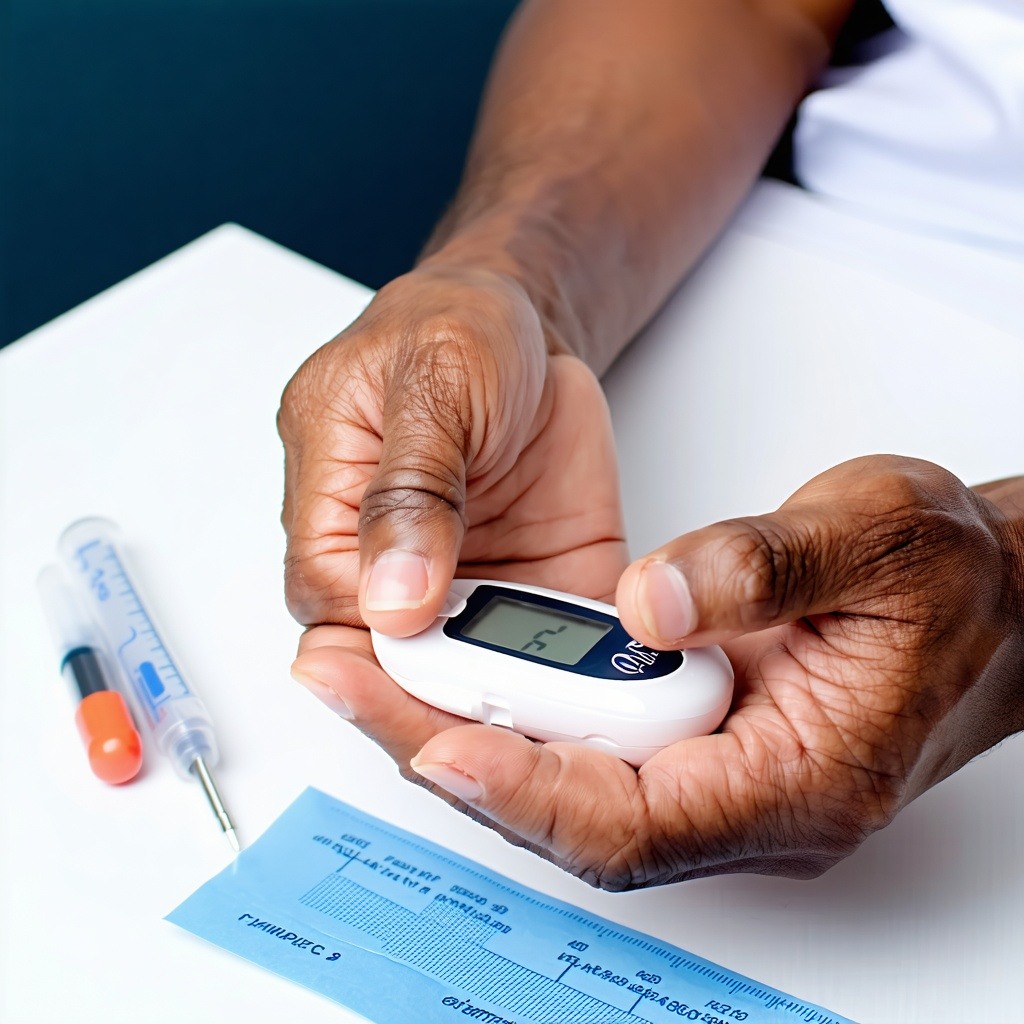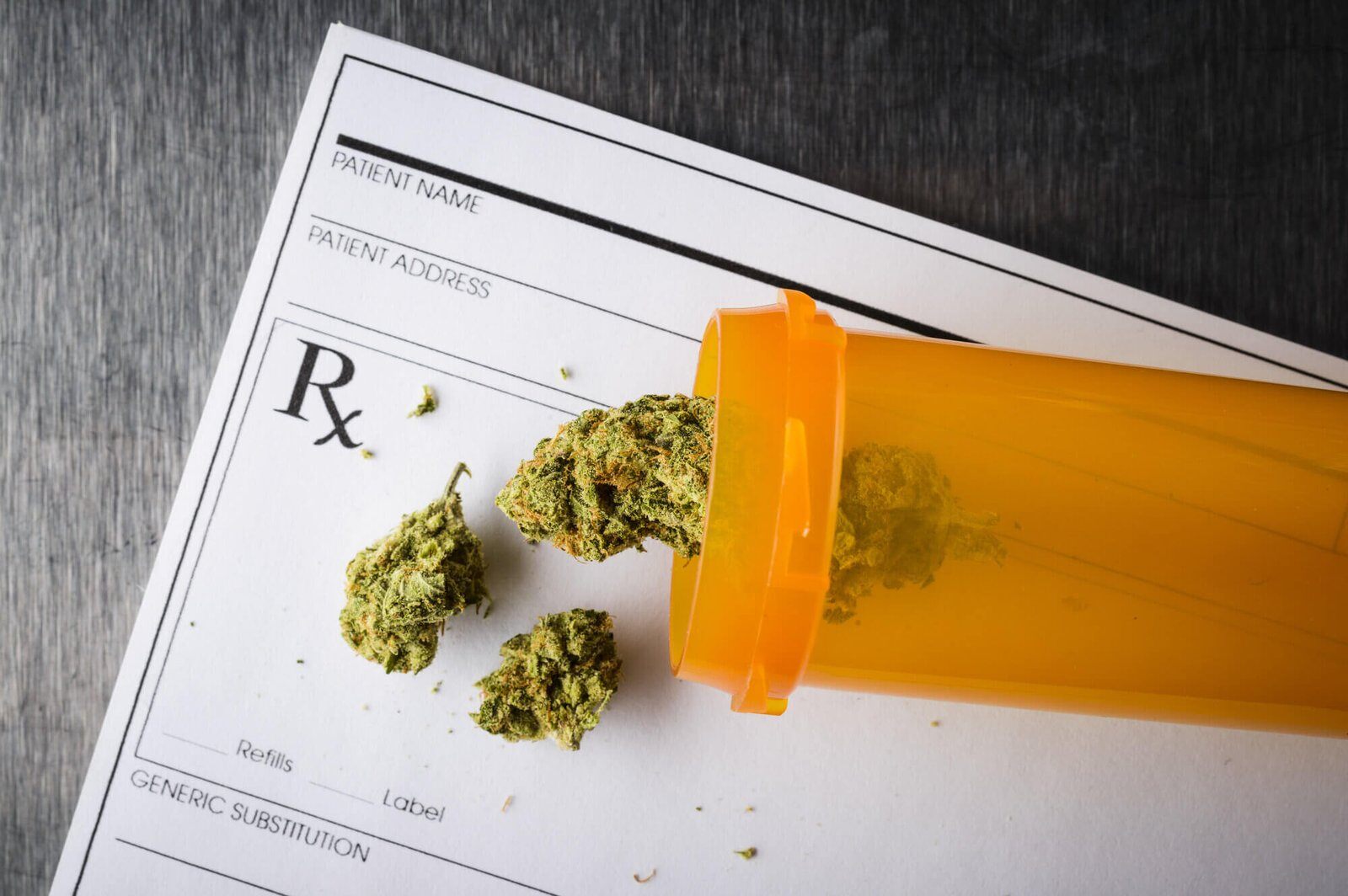Building Trust in Telehealth: HRx's Success with Trustmary
The Importance of Trust in Telehealth In the realm of telehealth, trust is not just a desirable trait; it is an absolute necessity. Patients share...
4 min read
 Dr Kaufman
:
Jan 12, 2021 12:00:00 AM
Dr Kaufman
:
Jan 12, 2021 12:00:00 AM

As an actively practicing Medical Cannabis (MC) Physician, I am frequently asked many questions about the effectiveness of MC for any number of symptoms and ailments. However, one particular question does not seem to be asked as often as I would expect given how common the disease is, especially in the United States. According to the Center for Disease Control’s, “National Diabetes Statistics Report,” as of February 2020 there were 34 million Americans with Diabetes and another 88 million (or 1 out of 3) that were Pre-diabetic (1). Therefore, the mysteriously missing question that I would expect to be asked more commonly, is whether or not MC can help diabetic patients improve control of their blood sugars?
This issue is far larger than even the prior numbers illustrate. As was outlined in an article by the American Diabetes Association, “The Cost of Diabetes” published in February 2020 the annual cost of treating all diabetic Americans tops out at over $327 billion (yes, with a “B”) each and every year. This unfathomable cost is not only excessive, it is going up at an alarming rate having increased approximately 26% since 2012 (2). To put this dollar amount into a more useful example, $327 billion dollars is enough to purchase almost eleven million, $30,000 automobiles (3). Therefore, if the answer to this question was positively supported in the scientific literature, and the results of such demonstrated a benefit of tighter blood sugar control in diabetic patients, then intuitively as a Medical Professional it would seem congruent that such an effect would minimize the risks diabetic patients’ face. The reduced risks I am referring to consist of many of the more obvious problems such as loss of vision, reduced cardiovascular disease (heart attacks and strokes), fewer individuals with kidney failure or on dialysis, diminished poor circulation resulting in fewer amputations, and even help prevent the nerve pain that is so often diagnosed in diabetic patients’ feet and other locations.
In searching for answers to this question I would first like to tangentially mention two phrases that I feel all MC patients should know. Inasmuch, the following descriptions can be easily found on the website getfluent.com and are summarily presented to follow. The first phrase is “Full Spectrum,” and this refers to MC medications that contain the total range of cannabis sub-compounds without compromising any aspect of the plant’s individual component profile; resulting in its full medicinal potential. This concept is inclusive of over 500 medicinal compounds that work together to bring each plant its unique therapeutic benefit. This important concept also serves to inform the second phrase which is “The Entourage Effect.” This effect attempts to explain why certain types of collective compounds combined in a medication have been shown to be more effective in treating certain health conditions than an isolate such as 100% delta 9-THC or 100% CBD alone. You can think of this effect in terms of synergy where two or more components work together to achieve something that each one independently could not have done on its own. Or more simply, the sum is greater than its parts (4). While the reasons behind these concepts have yet to be fully elucidated, the fact that they exist is undeniable and they make a significant difference in the medications’ benefit to patients.
What does any of this have to do with diabetes and blood sugar? Firstly, it provides each patient with knowledge about what makes MC medications effective for such a wide variety of ailments. Secondly, knowing that there are so many compounds working together towards a particular effect informs patients’ choices when they are shopping for medications for very particular effects. For example, Jadoo, KA et. al., published an article in Diabetes Care, demonstrating that Cannabis use resulted in a significantly decreased fasting glucose in Type 2 Diabetic patients particularly when using strains high in the sub-compound THCV, not to be confused with delta-9-THC. They also demonstrated that THCV improved the function of the pancreatic cells that play a key role in this complex disease process (5). This phenomenal discovery represented a new therapeutic target that patients can obtain when they visit their local dispensary as the breakdown percentages of each sub-compound in a medication are often on the labels, or at least in the State-Required Laboratory Testing Reports which can be produced upon request to a patient by a dispensary employee. To be more precise, if a diabetic patient were trying to choose between multiple medications that would benefit their blood sugar control, choosing a medication that has a higher percentage of THCV than one with a lower percentage would be the more prudent decision. Additionally, in The Journal of Diabetes, Ngueta, G et. al., not only verified the previous results by Jadoo et. al., but went further and illustrated that this effect on blood sugar and pancreatic cells is even more pronounced in obese Type 2 Diabetic patients compared to non-obese patients and that this effect was seen even at the low use frequency rate of <4 uses per month. Just as easily as a peer-reviewed scientific article can provide us with positive information, they can also look at other results to inform MC use decisions by particular patient groups. This article presented a dual-result that reinforces the frequently stated “start low and go slow” philosophy advocated by all the physicians at Doctors of Cannabis. In support of this claim, the article further explained that consumers of Cannabis with a high lifetime use, demonstrated significantly lower insulin levels that continue regardless of the duration of time that has passed since the patient’s last use. This can be interpreted as a reinforcer of reduced frequency of MC utilization for improvement in blood sugar control as sometimes “less is truly more.” At this point in time the optimal use frequency has not been described to achieve the maximal benefit, however it provides evidence that supports claims many MC Physicians have been making for a number of years and yields concrete results that will be investigated further in future studies.
In conclusion, in Medicine we as Physicians often look to our colleagues who are or have conducted clinical trials of various agents and/or practices to determine their effectiveness for use in our own patients. However, clinical studies of MC, for reasons beyond the scope of this article have been a difficult undertaking by Medical Scientists in recent years. Despite that aforementioned statement, as of the writing of this article the voting citizens of the U.S. have approved MC in 36 states and four territories. Moreover, while we as a society and a Profession may be in the early stages of establishing all of the medicinal properties of MC there is clearly an ever-growing critical mass of positive studies that support MC utilization in a multitude of ailments that continue to be published in reputable and easily accessible locations thanks to the power of the internet.
1: https://www.cdc.gov/diabetes/php/data-research/index.html
2: https://www.diabetes.org/resources/statistics/cost-diabetes
3: https://researchmaniacs.com/Numbers/Billions/How-much-is-325-billion.html
4: https://www.verywellhealth.com/marijuana-and-diabetes-5105170
5: https://pubmed.ncbi.nlm.nih.gov/27573936/
6: https://pubmed.ncbi.nlm.nih.gov/31152633/
Jeremy Boucher, M.D., PCEO
Visit us here for more information

The Importance of Trust in Telehealth In the realm of telehealth, trust is not just a desirable trait; it is an absolute necessity. Patients share...

4 min read
According to the CDC, marijuana is the most commonly used federally illegal drug. About 18% or 48.2 million people used it at least once in...

Medical marijuana has steadily been increasing in popularity throughout the country. The marijuana legalization movement has gained significant...